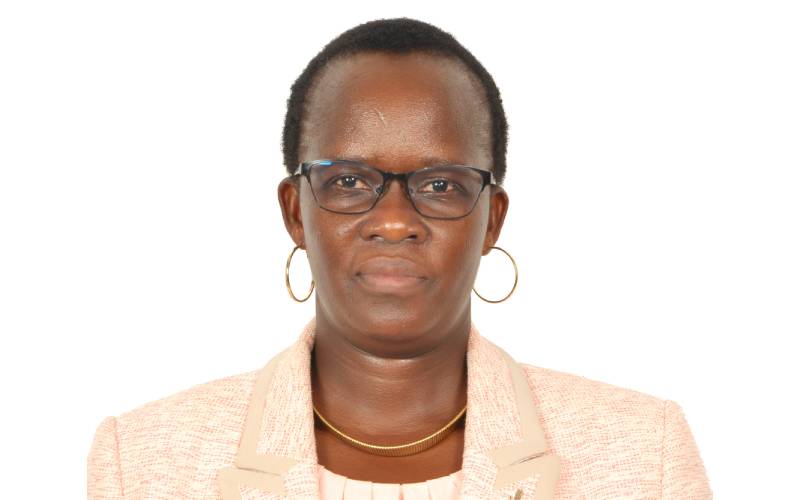
Audio By Vocalize

Ethical procurement practices are acceptable norms that supply chain professionals and institutions must adopt to ensure flawless supply processes. Practitioners are expected to exhibit professionalism to ensure institutional functionality, transparency and significant savings in expenditure.
Globally, both public and private institutions strive to put in place procurement systems and structures as procurement plays a pivotal role in the economic development of nations. Public procurement represents a significant percentage of the Gross Domestic Product (GDP), generating huge financial flows, estimated on average at 10-15 per cent of GDP across the world.
According to ‘The Organization for Economic Co-operation and Development (OECD)’, in the year 2008 OECD countries committed to reforming public procurement in order to promote good governance in the whole procurement cycle by enhancing integrity in procurement in order to uphold ethical standards and the moral values of honesty, professionalism and righteousness being the cornerstone for ensuring fairness, non-discrimination and compliance in the procurement process.
African countries have also taken up the mantle of reforming public procurement. In Ghana, the reforms begun in 1996 as an integral part of a wider Public Financial Management Reform Program (PUFMAP). In Nigeria, according to Transparency International, there was an inadequate regulatory framework for public procurement before the enactment of the Public Procurement Act (PPA) in 2007. In Tanzania, it started in 1992 with a review of the entire procurement system and in Uganda the reforms commenced in 1997.
In Kenya, we can follow genesis of the public procurement system from the pre-independence era to date, as it commenced with the establishment of the Central Tender Board through a treasury circular in 1955. In 1960, the Treasury issued the Ministry of Works Stores and Services Fund Regulations which established the Supplies Branch as a division that deals with procurement of common-user items.
The regulation of the procurement system by Treasury circulars continued post-independence into the 1970s, 80s and 90s, until 2001when a legally regulated procurement system was put in place under the Exchequer and Audit (Public Procurement) Regulations, which unified all the circulars that had hitherto governed the public procurement system.
The Regulations also abolished the Central Tender Board and suggested the formation of Ministerial Tender Committees, the Procurement Appeals Board and the Public Procurement Directorate operating as departments in the Ministry of Finance.
In 2005, the Public Procurement and Disposal Act was approved by parliament as part of the public finance reform agenda. It established the Public Procurement Oversight Authority (PPOA) as regulatory body for development and oversight of the Kenyan public procurement system.
Its attendant Regulations were gazetted in 2006, which saw the operationalization of the Act on January 1, 2007. With the need to further strengthen and streamline the procurement process, the Public Procurement and Asset Disposal Act was enacted in 2015 and the Public Procurement and Asset Disposal Regulations passed in 2020.
The Act provided for all procurement professionals to be members of the Kenya Institute of Supplies Management (KISM), which was established under the Supplies Practitioners Management Act of 2007.
The Kenya Institute of Supplies Management (KISM) among other things is responsible for administering disciplinary procedures amongst persons registered under the Supplies Practitioners Management (SPM) Act No.17 of 2007 so as to maintain proper standards of professionalism and ethical conduct among practitioners in procurement and supplies management.
Today, the Institute promulgates the Disciplinary Policy and the Code of Ethics and Standards of Professional Conduct. The Policy explains the basis, sequence and outcomes of disciplinary actions employed by the Disciplinary Committee in circumstances where a member’s alleged misconduct warrants such action.
While the Code provides guidance and sets common ethical standards to assist KISM members to deal with the ethical dilemmas they face in the course of their duties, the Standards of Professional Conduct increase awareness of best practices and excellence that should be incorporated in procurement and supply chain activities.
Members are required to exhibit high standards of professional discipline in order to retain public trust and confidence across the entire procurement and supply chain management (PSCM) value chain.
The Code and Standards will serve as a model for measuring the ethical performance of PSCM professionals, regardless of their organization, business sector, or location. It marks the end of an era where supply chain professionals suffer condemnation in cases of misappropriation of funds that are procurement related, as it clearly spells out what amounts to professional misconduct on the part of supply chain professionals.
Stay informed. Subscribe to our newsletter
The Institute shall take disciplinary action against a member upon receipt of an official complaint from members or any other source relating to a member’s misconduct, an investigation, a disciplinary process, an audit, a judgment from a national court or information from another organization.
The Policy has highlighted the different decisions that can be made by the Disciplinary Committee, ranging from acquittal, written caution, written reprimand, payment for losses incurred, suspension and dismissal from KISM membership.
The Policy and the Code of Ethics will ensure that registered and licensed practitioners conduct themselves in a manner worthy of the public offices they hold. Additionally, it provides clear disciplinary procedures, ensures proper management of records pertaining to each disciplinary case and supports engagement of key stakeholders in upscaling disciplinary procedures and addressing emerging risks, trends and challenges.
Having in place a Disciplinary Policy and setting a Code of Ethics and Professional Standards is key towards better public resource management. These instruments also reflect the Government’s needs and provide a strategic outlook in relation to the attainment of national or institutional objectives.
In this era of fiscal austerity, ensuring efficiency and integrity in public procurement is essential towards guaranteeing sound public service delivery and maintenance of citizens’ trust in government.
Written by Dr Vincensia Apopa, a Council Member at the Kenya Institute of Supplies Management and the inaugural Chair of the Disciplinary Committee at the Institute.